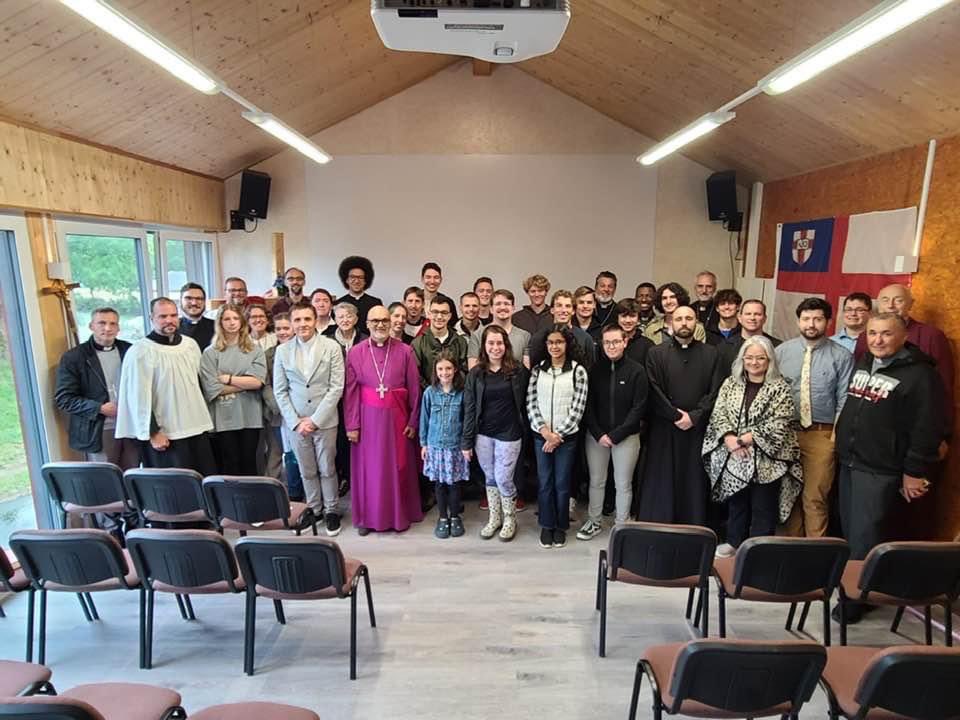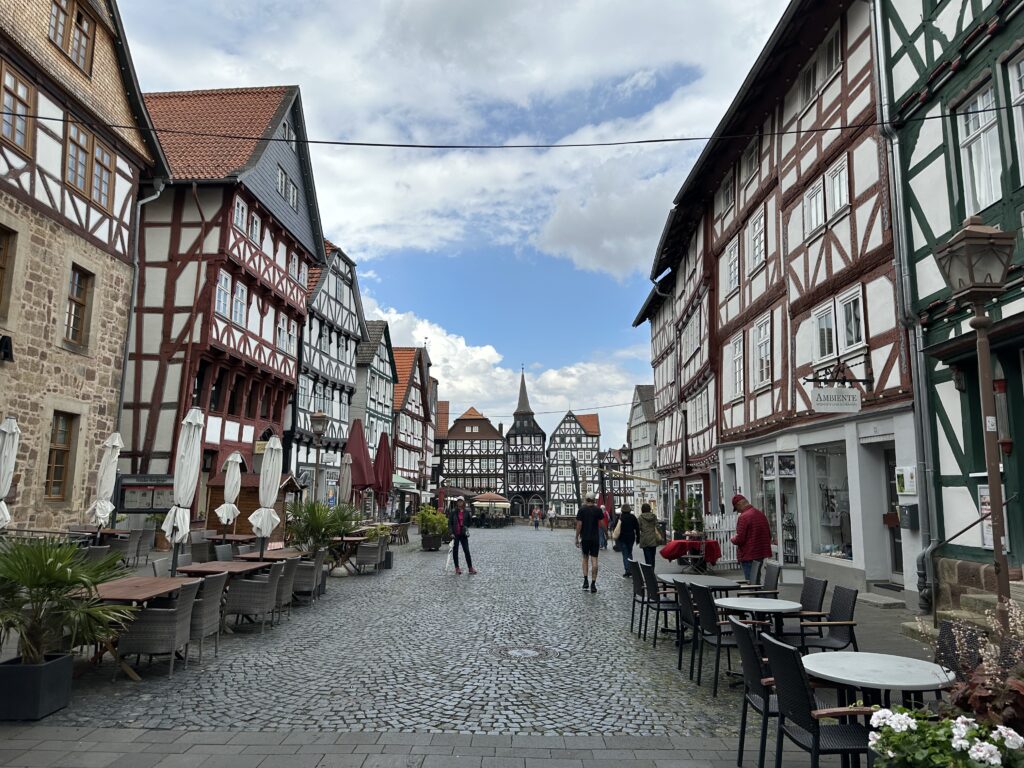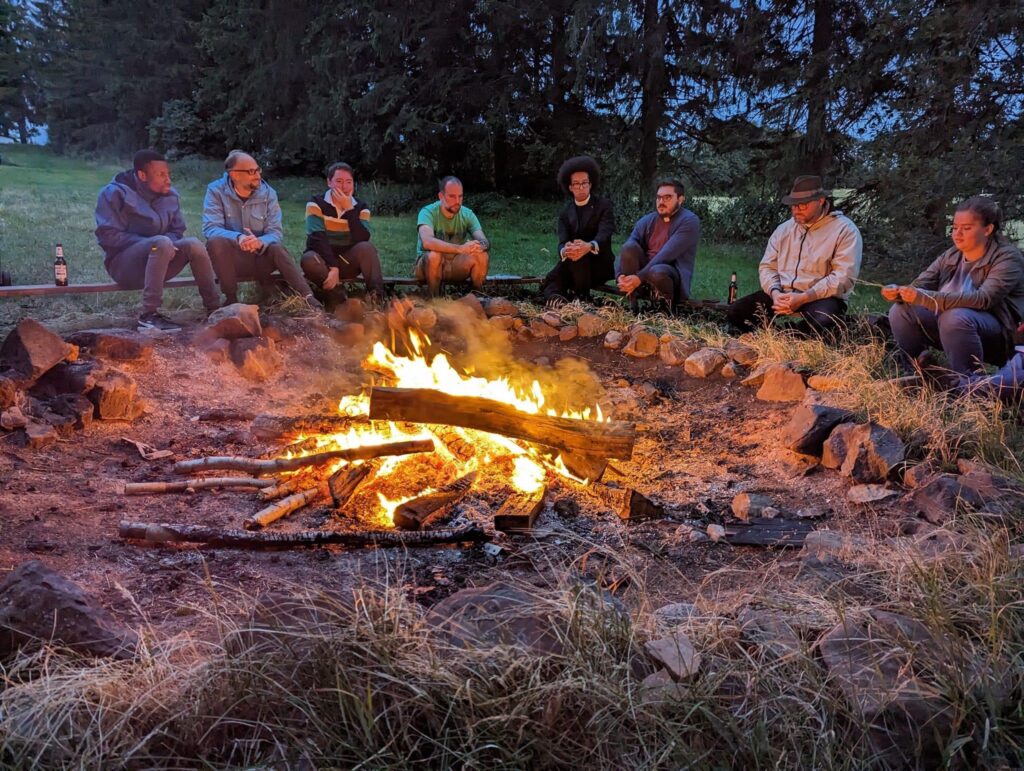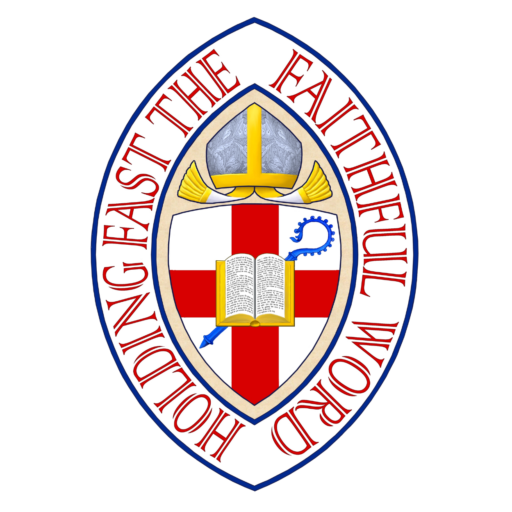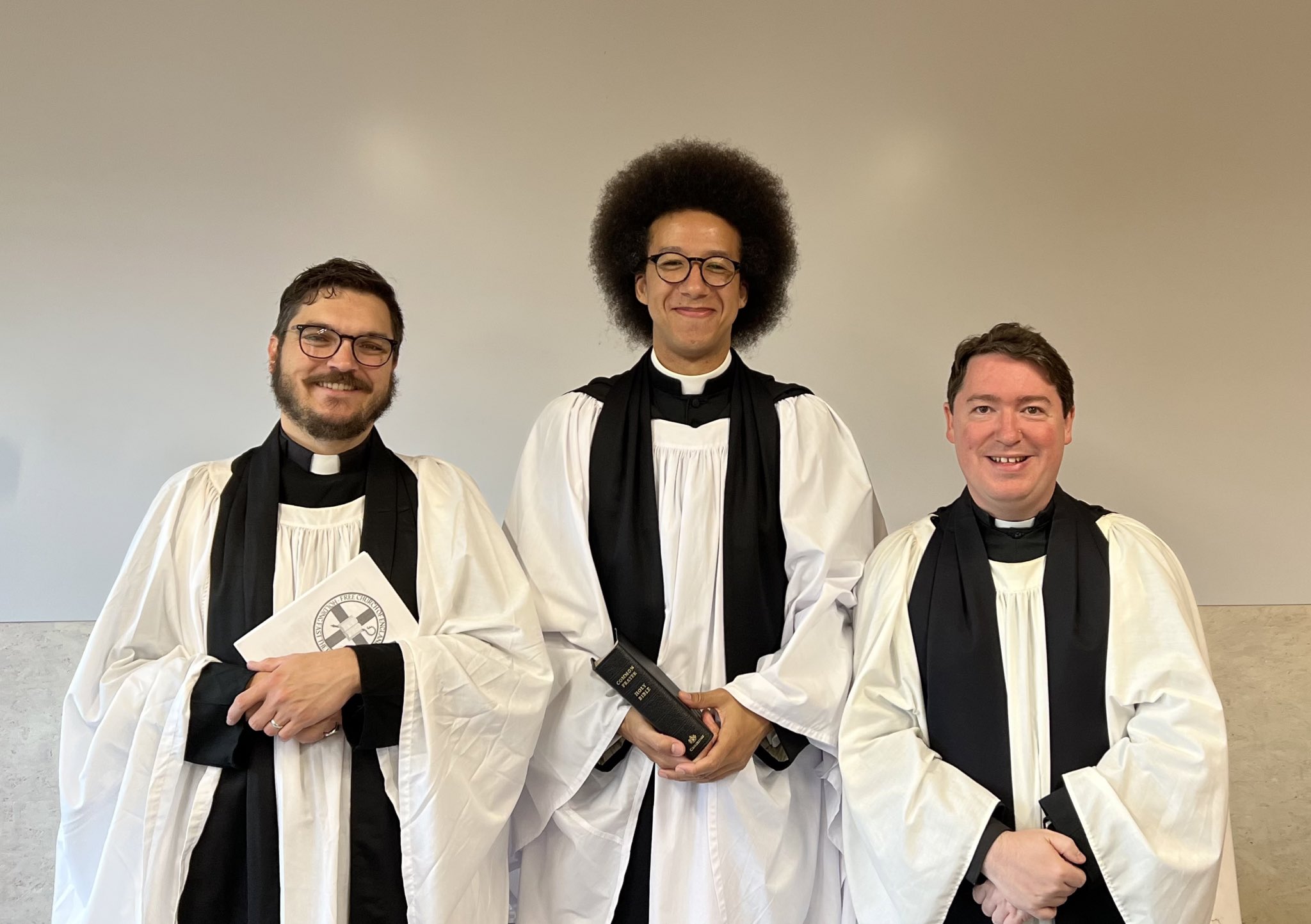From Monday 24th July to Friday 28th July Revds Brett Murphy, Calvin Robinson, and Matthew Firth attended the REC 100 Europe Church Planting Intensive at Knüll-Camp, Schwarzenborn, Germany. The UK delegation joined a delegation of three from Germany and four from Croatia. The conference met at the same time and location as the English Camp, which gave an excellent opportunity for the delegations to get to know teenagers and young adults from the REC USA.
In the context of daily Morning Prayer, shared meals, Eucharist, and Evening Prayer, the conference had three main elements: teaching on church planting, practical theology field trips, and informal fellowship and networking.
The teaching sessions covered five main areas: Convictions, Contextualisation, Culture, Constructs, and Practicalities. The Convictions section was about knowing and articulating Anglican identity, purpose, ecclesiology, and missiology. The Contextualisation section was about understanding the particular surrounding culture, striking a balance between accessibility and inherited identity, and the significance of liturgy and space. The Culture section was about forming and preserving the culture of a church plant. The Constructs section was about the seven systems needed to support a church plant: Vision & Strategy, Leadership, Discipleship, Worship, Pastoral Care, Administration, and Outreach. The Practicalities section was about planning, strategy, ideas on how to begin, monitoring, benchmarking, building sustainability, and avoiding common mistakes.
The field trips were valuable journeys of practical theology which significantly helped to reinforce the teaching session themes of Anglican identity, ecclesiology, and missiology. The trip to Martin Bucer’s church in Schwalmstadt concentrated on identity, formation, and catechesis. The trip to Fritzlar concentrated on missiology and challenging the surrounding culture, drawing inspiration from St Boniface felling the pagan oak and using the wood to found a church. The trip to Wartburg Castle in Eisenach focussed on Martin Luther and our Reformation roots, heritage, and identity.
The times of fellowship over meals and informal gatherings were invaluable. They not only enabled networking and friendship to build amongst planters from across Europe but they also enabled potentially valuable internship links between young people from the USA and churches in the UK, Germany, and Croatia.
The takeaways and ongoing benefits of the conference are materials that can be easily adapted for use in UK church planting training, a strengthened relationship between USA planting trainers and European planters, a network of friendships between planters across Europe, a developing vision for REC 100 Europe (a vision to plant and/or revitalise 100 Anglican churches across Europe in the coming season), a plan for coaching and mentoring European planters, good links with USA young people, and plans for further conferences.
